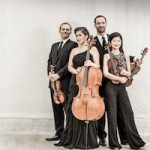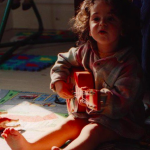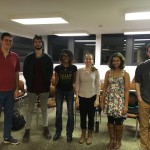The Arabic Section of the Department of Modern Languages and Literatures, the Islamic Studies Program, the Peace and Conflict Studies Program, and the the Health & Societies Program at the Lang Center for Civic and Social Responsibility are pleased to present:
A lecture by Dr. Hani Mowafi, Yale University
War on Humanity: Healthcare under Attack in the Syrian Conflict
Tuesday, March 6, 2018
Scheuer Room at 7:00 p.m.
 The Syrian war, now in its 7th year, has been one of the most brutal modern conflicts in the world. With estimates of over half a million deaths since the war’s inception and roughly 13 million displaced the conflict’s effects for Syria and the world will be long lasting. Combatants on all sides but primarily those allied with the Syrian government have used indiscriminate military force against civilian populations. In addition, the deliberate targeting of medical facilities and personnel, in flagrant violation of international law and global norms, has created a new dimension of brutality – one that is being emulated in other conflicts around the world. These violations in the way war is waged have occurred largely with impunity and have grave consequences for the future impact of armed conflict on civilian populations. Dr. Mowafi will discuss some of the unique elements of the Syrian conflict and its impact on civilian populations as well as highlight efforts to combat these developments on both the international and individual level.
The Syrian war, now in its 7th year, has been one of the most brutal modern conflicts in the world. With estimates of over half a million deaths since the war’s inception and roughly 13 million displaced the conflict’s effects for Syria and the world will be long lasting. Combatants on all sides but primarily those allied with the Syrian government have used indiscriminate military force against civilian populations. In addition, the deliberate targeting of medical facilities and personnel, in flagrant violation of international law and global norms, has created a new dimension of brutality – one that is being emulated in other conflicts around the world. These violations in the way war is waged have occurred largely with impunity and have grave consequences for the future impact of armed conflict on civilian populations. Dr. Mowafi will discuss some of the unique elements of the Syrian conflict and its impact on civilian populations as well as highlight efforts to combat these developments on both the international and individual level.
 Dr. Mowafi is an Associate Professor of Emergency Medicine and Chief of the Section of Global Health and International Emergency Medicine at Yale University. His interests are in developing the science and practice of emergency care with emphasis on low- and middle-income countries where the burden of emergency conditions is greatest and is combined with an unmet need for emergency services. Dr. Mowafi’s current research includes evaluation of health data from a network of hospitals operating inside war-affected Syria and modeling household income effects of road traffic injury in rural Uganda. He has 15 years of experience in consulting and research in emergency medicine and global public health.
Dr. Mowafi is an Associate Professor of Emergency Medicine and Chief of the Section of Global Health and International Emergency Medicine at Yale University. His interests are in developing the science and practice of emergency care with emphasis on low- and middle-income countries where the burden of emergency conditions is greatest and is combined with an unmet need for emergency services. Dr. Mowafi’s current research includes evaluation of health data from a network of hospitals operating inside war-affected Syria and modeling household income effects of road traffic injury in rural Uganda. He has 15 years of experience in consulting and research in emergency medicine and global public health.
For further information about this event, please contact Khaled Al-Masri: kalmasr1 *at* swarthmore.edu










